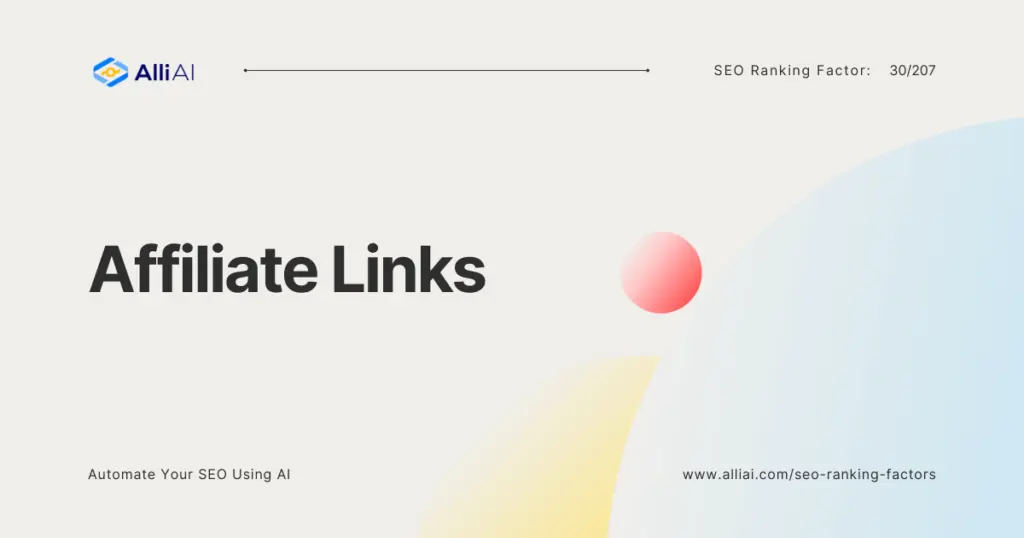What is Affiliate Links?
Affiliate links are specific URLs that contain the affiliate’s ID or username. In affiliate marketing, advertisers use these links to record the traffic sent to the advertiser’s website. This is part of a commission arrangement where the affiliate earns a percentage of the sales generated through the links they promote.
Imagine a scenario where you recommend a friend to your favorite coffee shop and the coffee shop decides to give you a free cup of coffee for every friend you bring. In this real-world analogy, the coffee shop is the advertiser, you are the affiliate, and the free cup of coffee is your commission. The only difference online is that this process is tracked through unique links rather than word-of-mouth referrals.
Why is Affiliate Links Important in SEO?
Affiliate links are crucial in SEO because they not only signal to search engines that other websites value your content enough to link to it but also generate direct and indirect traffic to your site. Direct traffic comes from clicks on the affiliate links, whereas indirect traffic can be the result of increased brand visibility and recognition through affiliate marketing efforts.
How Affiliate Links Affect SEO?
Google and other search engines have sophisticated algorithms designed to identify and evaluate affiliate links. If used properly, affiliate links can positively impact your site’s SEO by driving more traffic and potentially increasing the site’s authority. However, overuse or misuse of affiliate links can lead to penalties from search engines, harming your site’s ranking.
A study has shown that websites with a balanced and authentic use of affiliate links tend to perform better in SERPs than those that do not leverage affiliate marketing at all. According to a Semrush study, affiliate marketing spending is expected to increase, making it a significant source of income for publishers (Semrush, 2022). This underscores the growing importance of affiliate links in a comprehensive SEO strategy.
FAQ
– How many affiliate links are too many on a page?
Search engines do not publish specific limits for the number of affiliate links allowed on a page. The key is to ensure that the content provides value to the reader and is not overwhelmed by links. Avoid making your page look spammy or purely promotional as it can affect user experience and SEO performance.
Do affiliate links need to be disclosed?
Yes, transparency is crucial in affiliate marketing. The Federal Trade Commission (FTC) requires that you disclose your affiliate relationships to your audience in a clear and conspicuous manner. This not only builds trust with your audience but also ensures compliance with legal standards.
Can affiliate links affect my site’s speed?
Affiliate links themselves have minimal impact on site speed. However, the scripts and images associated with affiliate banners or ads can slow down your page loading times. It’s essential to optimize these elements to ensure they do not negatively affect your site’s performance.
Conclusion
Affiliate links play a significant role in SEO and, when utilized effectively, can enhance your site’s visibility, drive traffic, and contribute to your overall SEO strategy. The key to success lies in maintaining a balance — incorporating affiliate links in a way that adds value to your content and respects your audience’s trust. With the rapid growth of affiliate marketing, understanding how to leverage these links while adhering to SEO best practices is more important than ever. Remember, the goal is to enhance your content’s value to your audience, not just to insert as many affiliate links as possible.






